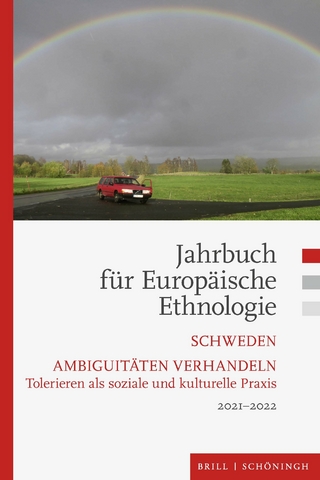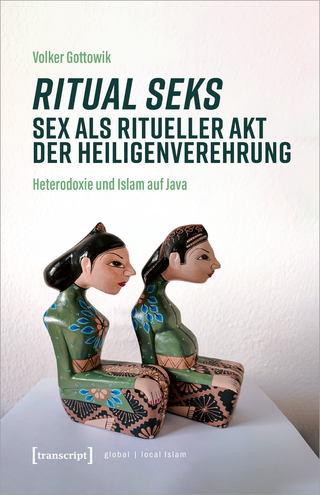
Stuart Hall's Voice
Intimations of an Ethics of Receptive Generosity
Seiten
2017
Duke University Press (Verlag)
978-0-8223-6363-7 (ISBN)
Duke University Press (Verlag)
978-0-8223-6363-7 (ISBN)
In these series of letters—which David Scott wrote to Stuart Hall following his death—Scott characterizes Hall's voice and his practice of speaking, listening, and generosity as the foundational elements of Hall's intellectual work.
Stuart Hall’s Voice explores the ethos of style that characterized Stuart Hall’s intellectual vocation. David Scott frames the book—which he wrote as a series of letters to Hall in the wake of his death—as an evocation of friendship understood as the moral and intellectual medium in which his dialogical hermeneutic relationship with Hall’s work unfolded. In this respect, the book asks: what do we owe intellectually to the work of those whom we know well, admire, and honor? Reflecting one of the lessons of Hall’s style, the book responds: what we owe should be conceived less in terms of criticism than in terms of listening.
Hall’s intellectual life was animated by voice in literal and extended senses: not only was his voice distinctive in the materiality of its sound, but his thinking and writing were fundamentally shaped by a dialogical and reciprocal practice of speaking and listening. Voice, Scott suggests, is the central axis of the ethos of Hall’s style.
Against the backdrop of the consideration of the voice’s aspects, Scott specifically engages Hall’s relationship to the concepts of "contingency" and "identity," concepts that were dimensions less of a method as such than of an attuned and responsive attitude to the world. This attitude, moreover, constituted an ethical orientation of Hall’s that should be thought of as a special kind of generosity, namely a "receptive generosity," a generosity oriented as much around giving as receiving, as much around listening as speaking.
Stuart Hall’s Voice explores the ethos of style that characterized Stuart Hall’s intellectual vocation. David Scott frames the book—which he wrote as a series of letters to Hall in the wake of his death—as an evocation of friendship understood as the moral and intellectual medium in which his dialogical hermeneutic relationship with Hall’s work unfolded. In this respect, the book asks: what do we owe intellectually to the work of those whom we know well, admire, and honor? Reflecting one of the lessons of Hall’s style, the book responds: what we owe should be conceived less in terms of criticism than in terms of listening.
Hall’s intellectual life was animated by voice in literal and extended senses: not only was his voice distinctive in the materiality of its sound, but his thinking and writing were fundamentally shaped by a dialogical and reciprocal practice of speaking and listening. Voice, Scott suggests, is the central axis of the ethos of Hall’s style.
Against the backdrop of the consideration of the voice’s aspects, Scott specifically engages Hall’s relationship to the concepts of "contingency" and "identity," concepts that were dimensions less of a method as such than of an attuned and responsive attitude to the world. This attitude, moreover, constituted an ethical orientation of Hall’s that should be thought of as a special kind of generosity, namely a "receptive generosity," a generosity oriented as much around giving as receiving, as much around listening as speaking.
David Scott is Professor of Anthropology at Columbia University. He is the author of a number of books, including Omens of Adversity: Tragedy, Time, Memory, Justice and Conscripts of Modernity: The Tragedy of Colonial Enlightenment, and is the editor of Small Axe: A Caribbean Journal of Criticism, all also published by Duke University Press.
Apology: On Intellectual Friendship 1
1. A Listening Self: Voice and the Ethos of Style 23
2. Responsiveness to the Present: Thinking through Contingency 53
3. Attunement to Identity: What We Make of What We Find 85
4. Learning to Learn from Others: An Ethics of Receptive Generosity 115
Adieu: Walk Good 143
Acknowledgments 147
Notes 149
Index 179
| Erscheinungsdatum | 22.04.2017 |
|---|---|
| Verlagsort | North Carolina |
| Sprache | englisch |
| Maße | 152 x 229 mm |
| Gewicht | 431 g |
| Themenwelt | Sozialwissenschaften ► Ethnologie ► Völkerkunde (Naturvölker) |
| Sozialwissenschaften ► Soziologie | |
| ISBN-10 | 0-8223-6363-1 / 0822363631 |
| ISBN-13 | 978-0-8223-6363-7 / 9780822363637 |
| Zustand | Neuware |
| Haben Sie eine Frage zum Produkt? |
Mehr entdecken
aus dem Bereich
aus dem Bereich
Schweden : Ambiguitäten verhandeln - Tolerieren als soziale und …
Buch | Softcover (2023)
Brill Schöningh (Verlag)
49,90 €
Buch | Softcover (2023)
transcript (Verlag)
54,00 €


